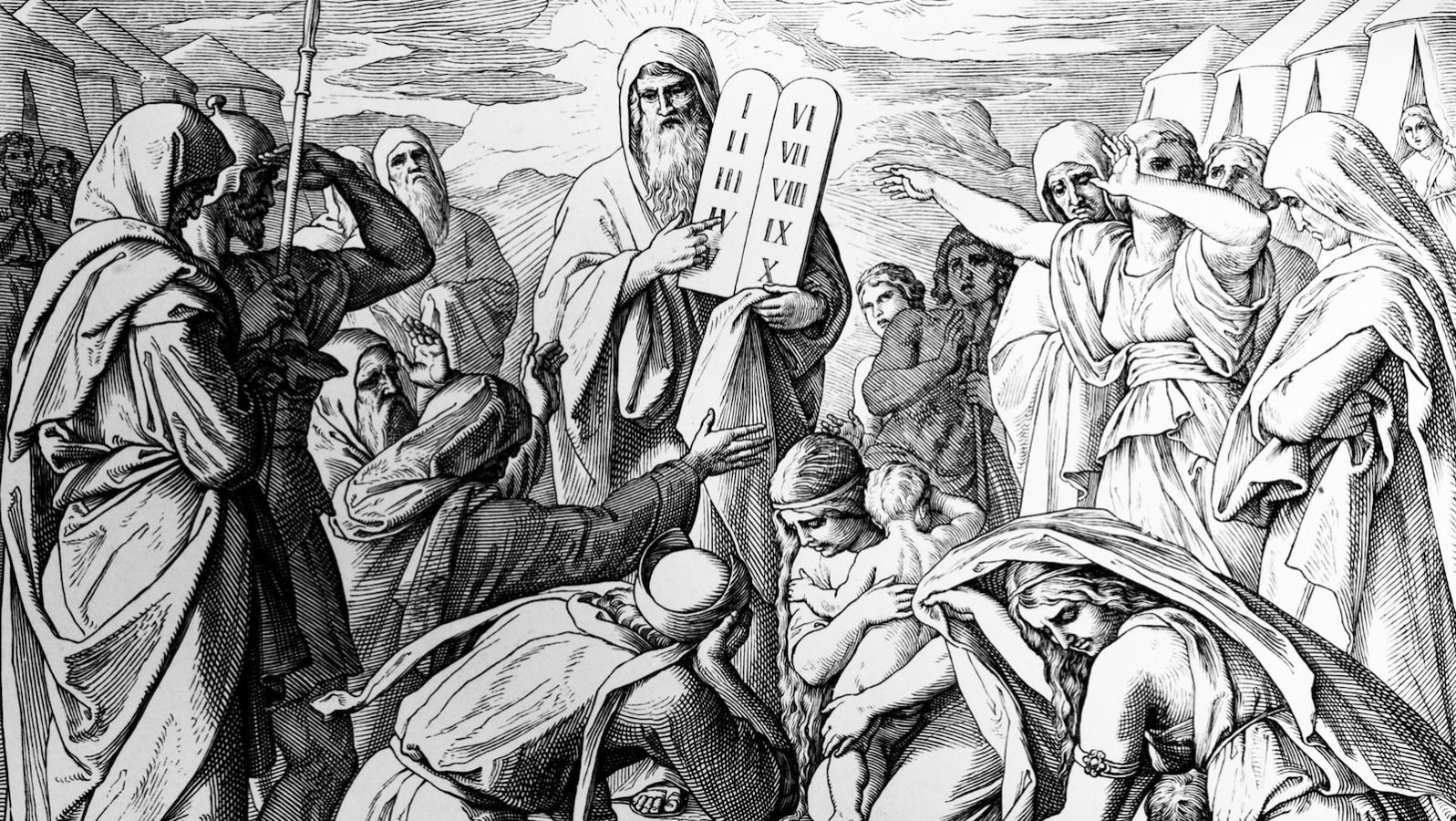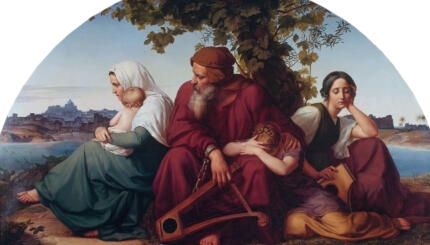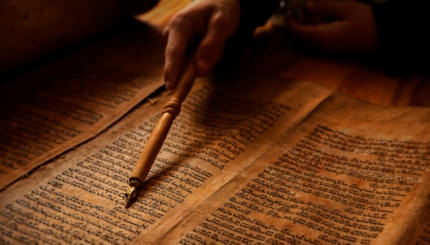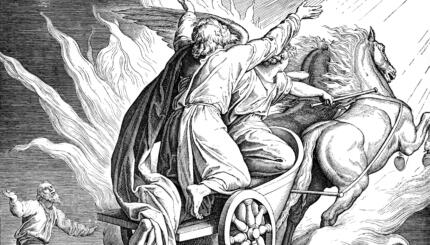Commentary on Parashat Vaetchanan, Deuteronomy 3:23-7:11
The second account of the Decalogue (“Ten Commandments”) described in this portion has long been scrutinized for how it differs from the version in Parashat Yitro. One obvious difference is the reason given for observing the Sabbath. Exodus states that we should rest on the seventh day in imitation of God at Creation, but Deuteronomy 5:15 focuses on our need as humans to rest. Another discrepancy is that Exodus 19 situates the revelation at while 5:2 refers to this sacred site as Horeb. But the most significant difference between these two texts lies in the Israelites’ own state of mind.
When the Israelites stand at Mount Sinai in Exodus19-20, they have successfully fled the Egyptians, crossed the Sea of Reeds, and been fed in the wilderness on manna; the danger is behind them. When they hear the first of the “Ten Words”–“I am your God who brought you out of the land of Egypt”– each of them has a personal understanding of the God they have known and experienced.
In Deuteronomy, however, the danger lies ahead. Of those hearing Moses’ recitation of the commandments this time, almost none actually fled Egypt themselves. Earlier, they may have witnessed their rebellious parents’ refusal to fight for the Promised Land (Numbers 13-14); but now, precious few of them still has a living parent. The giants of their youth–Moses, Aaron, and Miriam–are either dead or soon will be. The Israelites themselves, untested, will have to battle their way into the Promised Land in order to settle there, In Exodus, the Israelites are preoccupied with the present; in Deuteronomy, they are focused on the future.
The Death of a Parent
Religion promises us a meaningful world. If we are not free, whether because of physical or psychological enslavement, then life may not be meaningful. But death also threatens meaning, so one of religion’s major tasks is to reconcile us to the losses we experience and, ultimately, to our own mortality. Our religion must convince us that although death exits, meaning abides. We are finite not only because we die, but also because we have chosen the particular life we live. A people’s story spreads over a large canvas and lifts up everyone who participates in its story. When we identify with those who came before us and when we are invested in those who will come after us, then we are part of something much larger than our individual lives and efforts.

Help us keep Jewish knowledge accessible to millions of people around the world.
Your donation to My Jewish Learning fuels endless journeys of Jewish discovery. With your help, My Jewish Learning can continue to provide nonstop opportunities for learning, connection and growth.
While religion can help us find meaning in the face of death, the experience of bereavement transcends our cognitive experience. In particular, with the death of one’s parents comes a feeling of loss and, subsequently, a quest for enduring values. During the final years in the wilderness, after their parents have died, the members of the generation about to enter into the Promised Land go through a gradual reassessment of their parents’ identities, trying to figure out who their ancestors were and who they are themselves. As Moses recounts all that has transpired since the Israelites escaped from Egypt, he emphasizes that the prior generation died because they lacked faith: disillusioned, they had doubted God’s plan to fulfill the covenant of the ancestors and settle them in the Promised Land. Now, standing in Moab, poised to complete the forty year journey, the current generation comes to admire and appreciate the stark honesty of their parents, who had passed on the history of their own inadequacies so that their children would not “be like their ancestors, a wayward and defiant generation, a generation whose heart was inconstant, whose spirit was not true to God” (Psalm 78:8).
How much deeper their understanding of their parents must have become when they themselves became adults and assumed the formidable task of raising the next generation! Now they face the awesome but voluntary task of carrying on the chain of tradition. After all, if they do not do so, no one else will. Their parents’ passing likely led them to understand that they are part of something larger than themselves, as well as to realize that they are merely a brief but significant moment in the life of the Jewish people. It is said that we become fully human and adult when we touch death. The loss of our parents makes us aware that we, too, are part of a generation that will die.
Looking to Future Generations
As the Israelites listen to Moses repeat the Decalogue, their biological parents are gone and their parent figure, Moses, will soon die. How can they find the invincible parent? Somehow, the people must internalize their ideal parent-in other words, they must parent themselves–and then raise the next generation. Their focus must shift to the next generation, the one without grandparents. The experience makes us better appreciate why the concept of l’dor vador (“from generation to generation”) is so central in our tradition.
Since mourning is a creative process, we can ask what new growth there is in the Israelites’ understanding of the Decalogue. Its commandments initially were addressed to those who had directly experienced the exodus from Egypt. If these words were to have the same force for subsequent generations, they must understand the word “Egypt” to represent all the ways in which they are constricted, degraded, and enslaved. And so, as those about to enter the Promised Land hear Moses repeat these words, they think of the “Egypt” of loss and the long “hard labor” of mourning. The God who had brought them out of Egypt becomes the God who comforts them, dries their tears, and encourages them to continue on their way after their parents have been buried in the wilderness. The God of comfort becomes a crucial addition to the ways in which the Israelites understand the One who freed them “from Egypt with a mighty hand” (6:21). As they prepare to settle in the Promised Land and face the vicissitudes of the next part of their formation as the Jewish people, this revelation of the Divine will prove to be particularly important.
Reprinted with permission from The Torah: A Women’s Commentary, edited by Tamara Cohn Eskenazi and Andrea L. Weiss (New York: URJ Press and Women of Reform Judaism, 2008).



